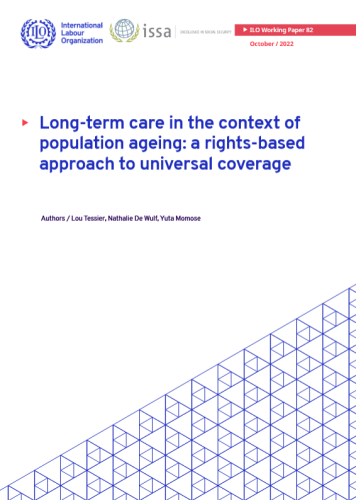Long-term care in the context of population ageing: a rights-based approach to universal coverage
With the acceleration of population ageing, the achieving of healthy ageing is becoming a global imperative and social protection policies and social security systems have an important role to play in this endeavour. Through a life-cycle approach, social protection systems can support the prevention of disability in old age (i.e. by addressing social determinants of health), effective access to long term-care without hardship for those in need of it and decent work in the care economy. In order to make this contribution effectively, the adoption of a gender-transformative approach will be required; for, women are disproportionately represented among both older persons and long-term care (LTC) providers in all their diversity. Furthermore, to adequately contribute to the achieving of healthy ageing and effective access to LTC without hardship as a rights-based entitlement, social protection systems will need to build strong coordination among health care, social care and other social and employment policies. This paper highlights the key entry points for social protection systems to contribute to the Decade on Healthy Ageing, building on a rights-based approach achored in human rights and international social security standards.
This working paper draws from the article “Long-term care in the context of population ageing: What role for social protection policies?” by the same authors published in the special edition of the International Social Security Review “The human right to long-term care for the elderly: Extending the role of social security programmes (Tessier et al., 2022)



